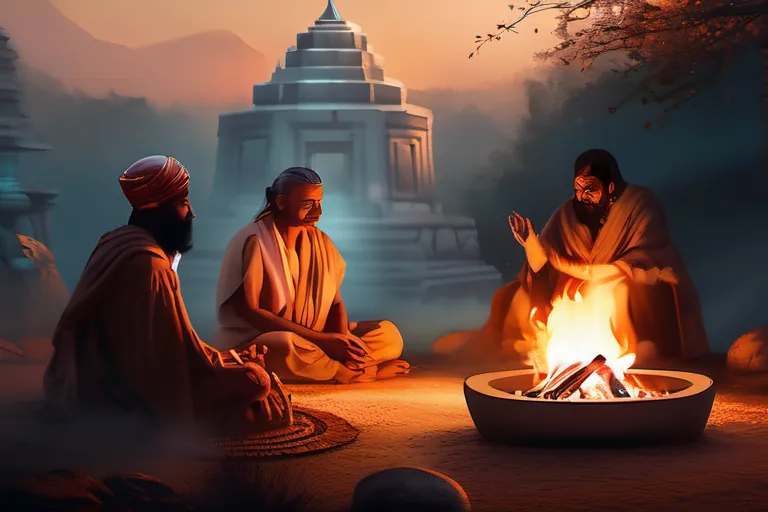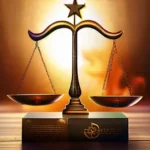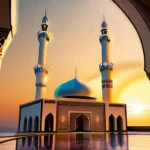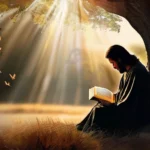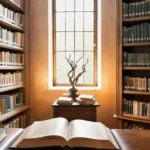Explore the fascinating history, evolution, and interplay between ethics and religion across cultures and time.
Delve into the intriguing origins of ethics and religion as we trace their development from early human societies to modern times. From moral codes to religious beliefs, uncover the complexities that have shaped our understanding of right and wrong, and the divine.
The Emergence of Moral Codes
Imagine stepping back into ancient times, where humanity’s earliest attempts at organizing society were laid bare. How did these early moral codes come to shape our world? Let’s explore the origins and significance of some of the most profound ethical systems that have guided human behavior for millennia.
The Ten Commandments are perhaps one of the most recognizable sets of moral rules in history, originating from ancient Israel. But do we truly understand their impact on society? These commandments, often seen as a divine gift to Moses, can be viewed as a cornerstone in the development of religious and ethical thought. They not only provided guidance but also served as a social contract between individuals and their community.
Then there is Hammurabi’s Code, which emerged from ancient Mesopotamia around 1750 BCE. This code was not just a set of laws; it was a reflection of the society’s values and norms, codified to ensure order and justice. By comparing these early codes with modern ethical systems, we can see how they laid down principles that resonate through time, suggesting a continuity in human attempts to define right and wrong.
Confucianism, originating from China, offers another fascinating perspective on ethics. Confucius, whose teachings were compiled into the Analects, emphasized the importance of wu wei, or effortless action, and ren, often translated as benevolence. This ethical framework not only guided individual behavior but also societal interactions, promoting harmony and social order through moral virtues.
These early moral codes, be they religious or secular in nature, serve as a bridge between the past and present. They remind us of our shared human quest for understanding what it means to live ethically and morally within communities. As we continue to navigate the complexities of modern life, these ancient principles provide a foundation upon which contemporary ethical frameworks can be built.
The Development of Religion
Tracing the evolution of religion from its earliest forms to the complex systems we know today, we embark on a journey that intertwines mythology and spirituality in a rich tapestry of human belief. From the animistic beliefs where nature spirits roamed every tree and stone, to the monotheism that one day would dominate vast empires—this evolution is not just about changing doctrines but also about how these beliefs shaped and were shaped by societies.
Imagine religion as a river, with its source hidden deep in prehistory. Animism, the belief in spirits dwelling everything from rocks to rivers, was like the tiny spring that feeds it. These early people saw every natural phenomenon as imbued with life, a concept so profound it laid the foundation for many spiritual beliefs to come.
As communities grew and societies became more complex, religion began to evolve. The Hindu tradition offered a rich landscape of deities and rituals, reflecting a polytheistic worldview where each aspect of life was connected to a divine being. This polytheism allowed for a vast array of gods, each with their own sphere of influence—much like a complex ecosystem where every element is interconnected.
Buddhism emerged as a response to the excesses of Hindu ritualism and the suffering it caused. It offered a path to liberation from the cycle of rebirth through meditation and understanding the nature of reality, much like finding calm in the eye of a storm. Its spread across Asia brought about a profound shift towards individual enlightenment rather than adherence to rituals.
In the West, Christianity came with its own radical changes. It introduced the idea of one omnipotent god who was both creator and judge, setting new standards for morality and ethics. The New Testament’s teachings on love, forgiveness, and service to others were revolutionary in their time, challenging traditional social hierarchies and moral codes.
Finally, Islam, with its unifying call to monotheism (Tawhid) and the concept of prophethood as a common thread across different cultures, swept through the Middle East and beyond. Its strict ethical framework, encapsulated in the Five Pillars, provided clear guidelines for daily life, much like a compass guiding travelers on a perilous journey.
Each religion, from its earliest animistic roots to the grand syntheses of Hinduism, Buddhism, Christianity, and Islam, reflects not just beliefs but also the cultural milieu and social needs of their time. This evolution is a testament to human creativity and adaptability, always seeking deeper understanding and connection with the world around us.
Ethics in Ancient Societies
Imagine stepping back in time to ancient Greece, where philosophers like Socrates and Plato laid down the foundational principles that would shape Western ethical thought for centuries. How did their ideas evolve from mere conjectures into the structured systems we study today? Wasn’t it these early thinkers who first questioned the nature of right and wrong?
In ancient Rome, ethics took a more practical turn, intertwined with law and governance. Cicero, in particular, emphasized the concept of natural law, suggesting that certain moral principles were inherent to human nature. Could this be where the idea of universal ethical standards began to take root? The Romans also saw ethics as closely linked to civic duty, reinforcing the notion that individual actions had a collective impact.
Across the vast expanse of ancient China, Confucianism and Taoism emerged with their own unique approaches to ethics. Confucius taught about ‘Ren,’ or humaneness, emphasizing the importance of relationships and social harmony. Taoism, on the other hand, advocated for living in accordance with nature, promoting simplicity and non-action (wu wei). These philosophies offer a profound insight into how ethical principles can vary significantly across cultures.
As we explore these ancient societies, it becomes clear that ethics were not merely abstract concepts but integral to daily life. They guided actions, shaped societal norms, and provided a moral compass for individuals navigating the complexities of their worlds. How did these early ethical frameworks influence the development of modern ethical theories? And what lessons can we draw from them today?
The Interplay Between Ethics and Religion
The interplay between ethics and religion has been a complex dance throughout history, influencing each other in profound ways. Imagine ethics as the soil from which religious beliefs grow, while religion provides the nourishment that helps ethical principles flourish. This relationship has shaped societies in various regions and times.
One of the earliest examples of this interplay is found in ancient Egypt, where the concept of ma’at—balance and order—was both an ethical principle and a religious ideal. This principle emphasized harmony with nature and societal norms, influencing the governance and daily lives of Egyptians. Could it be that without such deeply ingrained ethical principles, the grandeur of Egyptian civilization would have been impossible?
In Judaism, the Ten Commandments serve as a bridge between religion and ethics, establishing moral codes that are still followed today. These commandments not only dictate how one should behave but also define the relationship between humans and their Creator. How could we consider modern ethical systems without recognizing the foundational role of these ancient religious texts?
The influence of religion on ethics is also evident in Hinduism through the concept of dharma. This term encompasses both moral duty and righteousness, guiding individuals towards spiritual growth and societal well-being. Can you imagine a world where such a holistic approach to ethics does not exist?
Christianity further illustrates this relationship with its emphasis on compassion, forgiveness, and charity as key ethical practices rooted in religious teachings. The life of Jesus Christ himself is often seen as an embodiment of these values, inspiring countless acts of kindness throughout history. How would our understanding of moral behavior be different without the profound impact of Christian ethics?
These examples show how religion has been a catalyst for developing and maintaining ethical systems across cultures. From ancient Egypt to modern Christianity, the intertwining of religious beliefs with ethical principles has shaped human societies profoundly. It is through this interplay that we can explore the rich tapestry of moral values that guide our actions today.
Modern Ethical Systems
As we journey through time, we encounter a myriad of ethical systems that have shaped human behavior and societal norms. Today, let’s dive into some of these contemporary ethical frameworks: utilitarianism, deontology, and virtue ethics. Each offers unique insights and challenges us to reflect on our own moral compass.
Utilitarianism, with its focus on the greatest good for the greatest number, is like a scale in our hands. We weigh the outcomes of our actions against the well-being of others. But how do we measure happiness? Is it always rational to sacrifice one person’s happiness for many? These questions make utilitarianism both compelling and complex.
Deontology, on the other hand, is like a compass pointing towards duty and obligation. It teaches us that certain actions are inherently right or wrong, regardless of their consequences. Yet, this path can sometimes feel rigid and inflexible. How do we balance our duties with the flexibility required in real-life situations? This ethical system makes us question the rigidity of rules.
Virtue ethics guides us through life like a map, emphasizing the importance of character over rules. It encourages us to develop virtues such as courage, wisdom, and kindness. But how do we define virtue, especially when cultural contexts differ widely? This approach challenges us to embody virtues in our daily lives, making it both enriching and challenging.
These ethical systems, like different lenses through which we view the world, provide valuable perspectives on what is right or wrong. They force us to reflect on the complexities of human behavior and the ever-evolving landscape of morality. As we navigate these frameworks, we are reminded that ethics is not just about rules but about the choices we make every day.
The Future of Ethics and Religion
As we delve into the future of ethics and religion, it’s essential to consider how these ancient guides for human behavior might shape our tomorrow. Will they provide a sturdy framework, like the roots of a mighty tree, nourishing societies? Or will they face new challenges, akin to navigating uncharted waters with outdated maps?
One of the key questions is whether religion and ethics can coexist harmoniously in the modern world. Can we adapt our religious teachings, once seen as infallible commandments, to fit contemporary life, where technology and global interconnectivity have transformed our landscapes? The answer might lie in reinterpreting these ancient texts through a lens of relevance, much like adapting an old story to the voice of today’s audience.
Consider the role of religion in addressing pressing global issues such as climate change, social justice, and technological ethics. How can religious communities play a pivotal role in fostering dialogue and action? Will they emerge as powerful voices for positive change or face internal divisions that threaten their unity?
The future also beckons with opportunities for growth through interfaith dialogue. Can different religions learn from each other’s strengths, much like seeds of wisdom blending to create a richer garden of belief? This exchange could foster mutual respect and understanding, countering the divisive rhetoric that plagues our world today.
To thrive in this future, we must embrace a flexible approach. Religion and ethics cannot be rigid; they must evolve with society. As we look forward, let us imagine a world where diversity of belief is not a barrier but a bridge to shared humanity. The path ahead may be uncertain, but it’s a journey worth embarking on if we wish to build a more compassionate and sustainable future for all.
Conclusion
 Gain a deeper appreciation for the role of ethics and religion in shaping human civilization, and consider their ongoing impact on our lives today.
Gain a deeper appreciation for the role of ethics and religion in shaping human civilization, and consider their ongoing impact on our lives today.

